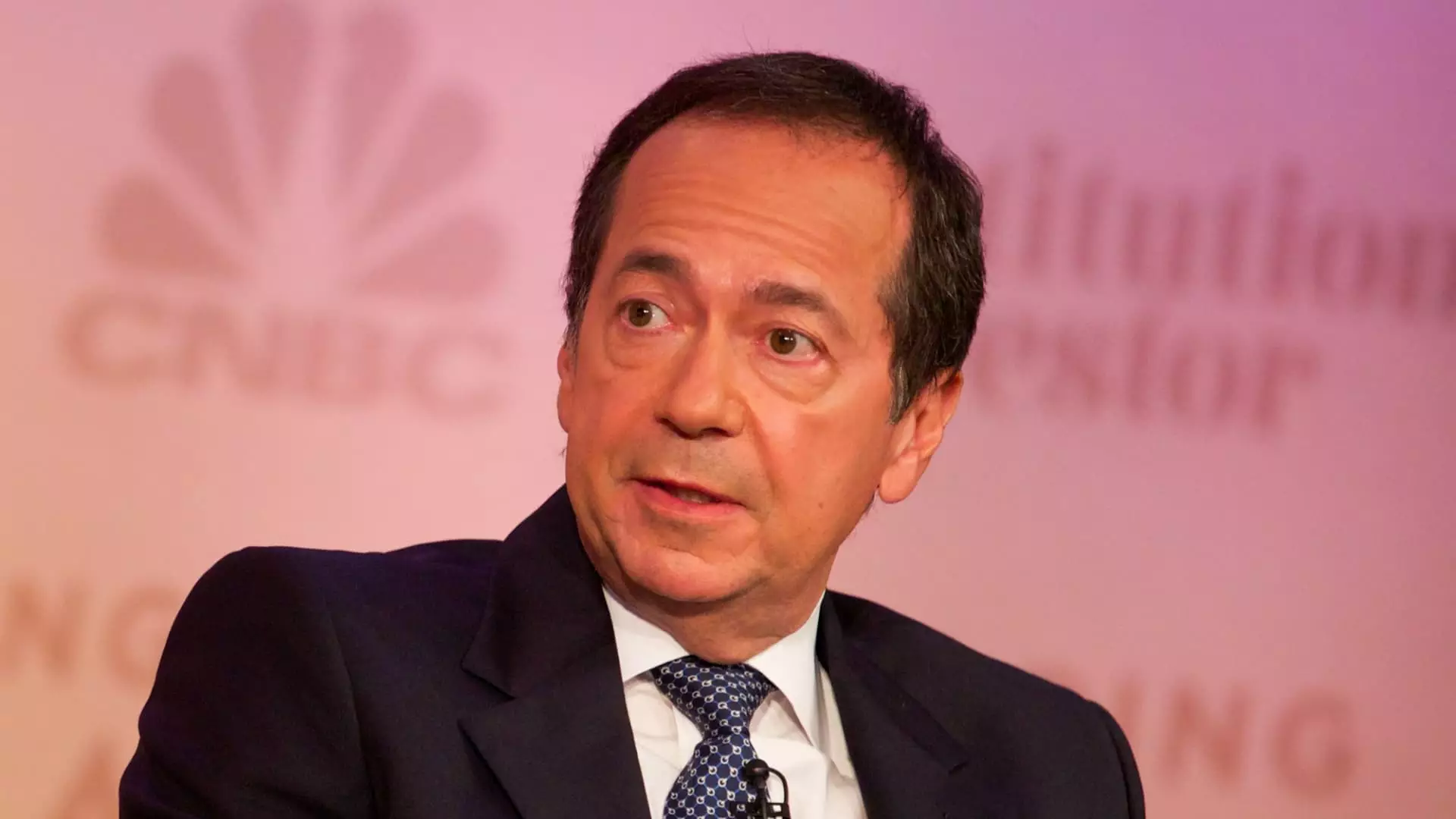The financial landscape often rests on a precarious balance between policy decisions and market reactions. Recent comments by hedge fund billionaire John Paulson highlight growing concerns among investors regarding potential tax reforms proposed by Vice President Kamala Harris and her associates. A significant player in the financial industry, Paulson’s perspective on these proposed tax hikes serves as a beacon of the storm that looms over the investment community.
John Paulson, who gained notoriety by betting against the housing market leading up to the 2008 financial crisis, has voiced his apprehensions regarding proposed tax increases under the Democratic administration. He pointedly critiqued plans that aim to elevate the corporate tax rate from 21% to 28% while also targeting capital gains taxes, which could rise dramatically from 20% to as high as 39%. Additionally, the introduction of a 25% tax on unrealized capital gains has ignited heated discussions. Paulson asserts these measures, if enacted, could lead to significant market downturns and an impending recession.
His vehement warnings reflect a broader unease within the investment community, suggesting that higher taxes could disincentivize investment, dampen corporate earnings, and ultimately affect the broader economy. The implications are serious; Paulson argues that a rush to liquidate assets in anticipation of these tax changes would lead to a destabilizing market impact. This translates into fears of a sell-off in various asset classes, such as real estate, stocks, and collectibles, which could trigger a domino effect that risks recessionary conditions.
The proposed 28% tax on long-term capital gains specifically targets households with an income of $1 million or above. This is a notable pivot from earlier propositions laid out by President Biden, which advocated for an even steeper tax rate of 39.6%. Furthermore, Harris’s endorsement of a tax on unrealized gains primarily impacts wealthier Americans, defined as households exceeding $100 million in assets. However, internal discussions within the Harris campaign have raised questions regarding the feasibility of such a taxing scheme, indicating a lack of consensus on its implementation.
Investors such as Mark Cuban have reportedly dismissed the seriousness of taxing unrealized gains, further complicating the narrative around these proposed tax increases. This uncertainty contributes to an apprehensive market atmosphere. Essential to understanding the potential fallout is recognizing how taxation that targets capital and investments diverges from more traditional fiscal strategies designed to stimulate economic growth.
Paulson’s warnings echo the sentiments of various Wall Street economists and strategists who contend that increasing the corporate tax rate might impede S&P 500 companies’ profitability. However, unlike Paulson, these analysts largely refrain from predicting the catastrophic market shakedown that he foresees. Their assessments suggest any downturn triggered by corporate tax hikes would be more measured rather than an instant plunge.
It’s crucial to evaluate the fine balance between taxation and economic growth. The implementation of higher taxes could disincentivize domestic and foreign capital inflows, thereby compromising job creation and productivity in the longer term. Critics of the proposed policies argue that a substantial tax hike would strain business operations and decrease overall economic vitality, which runs counter to the ambition of fostering a robust economic environment.
Paulson’s position highlights a critical dialogue within economic policymaking: the tension between fiscal responsibility and market stimulation. The potential consequences of Harris’s tax proposals underscore the importance of a comprehensive approach to economic policy—one that synchronizes taxation, investment incentives, and overall economic growth. While there is no clear path forward, the discourse around these issues will invariably shape the financial landscape in the coming years. The stakes are high, and the ramifications of these tax policies could reverberate across multiple sectors, influencing investment strategies, market behavior, and ultimately, the health of the economic system as a whole. Understanding these dynamics is vital for investors, policymakers, and the public alike as they navigate this uncertain terrain.

